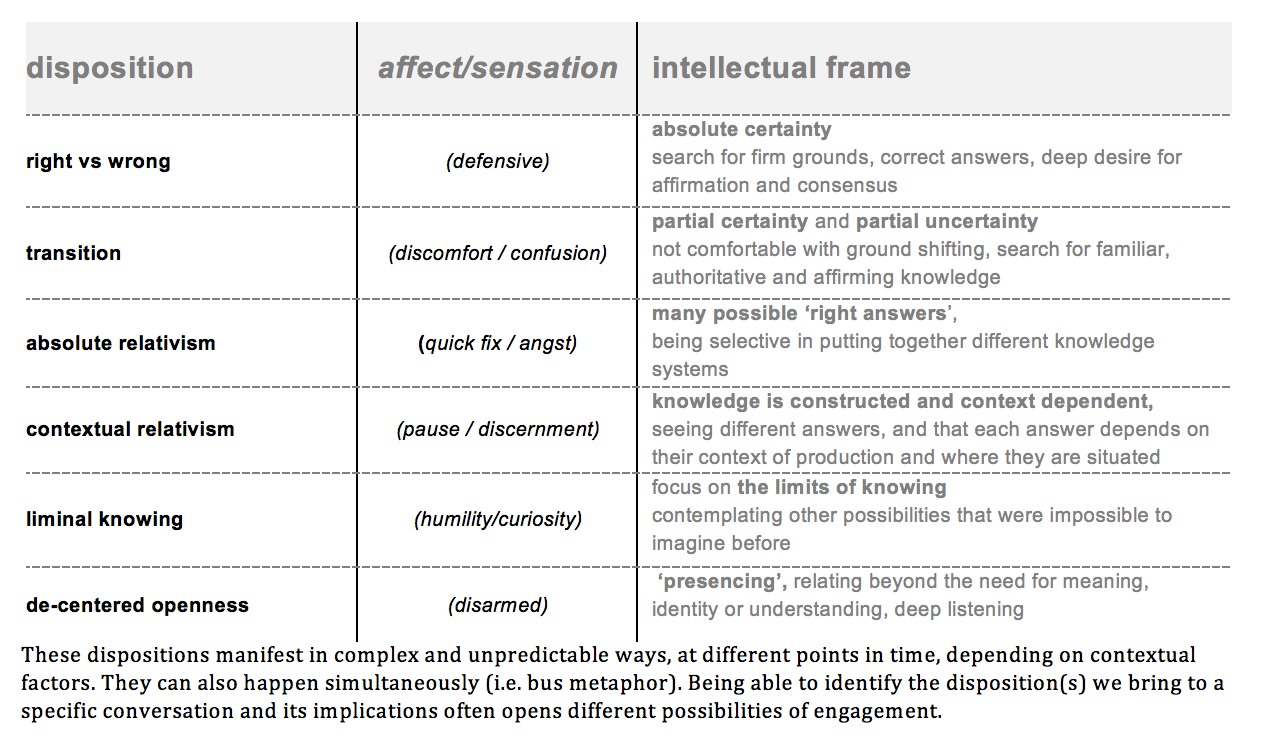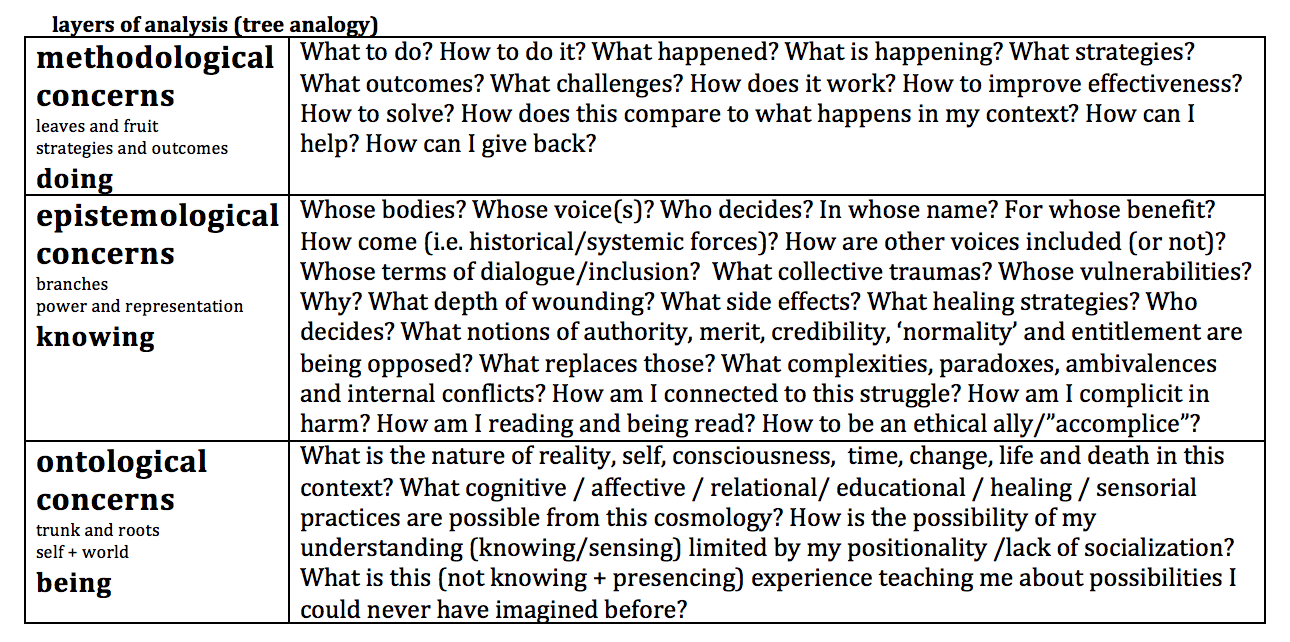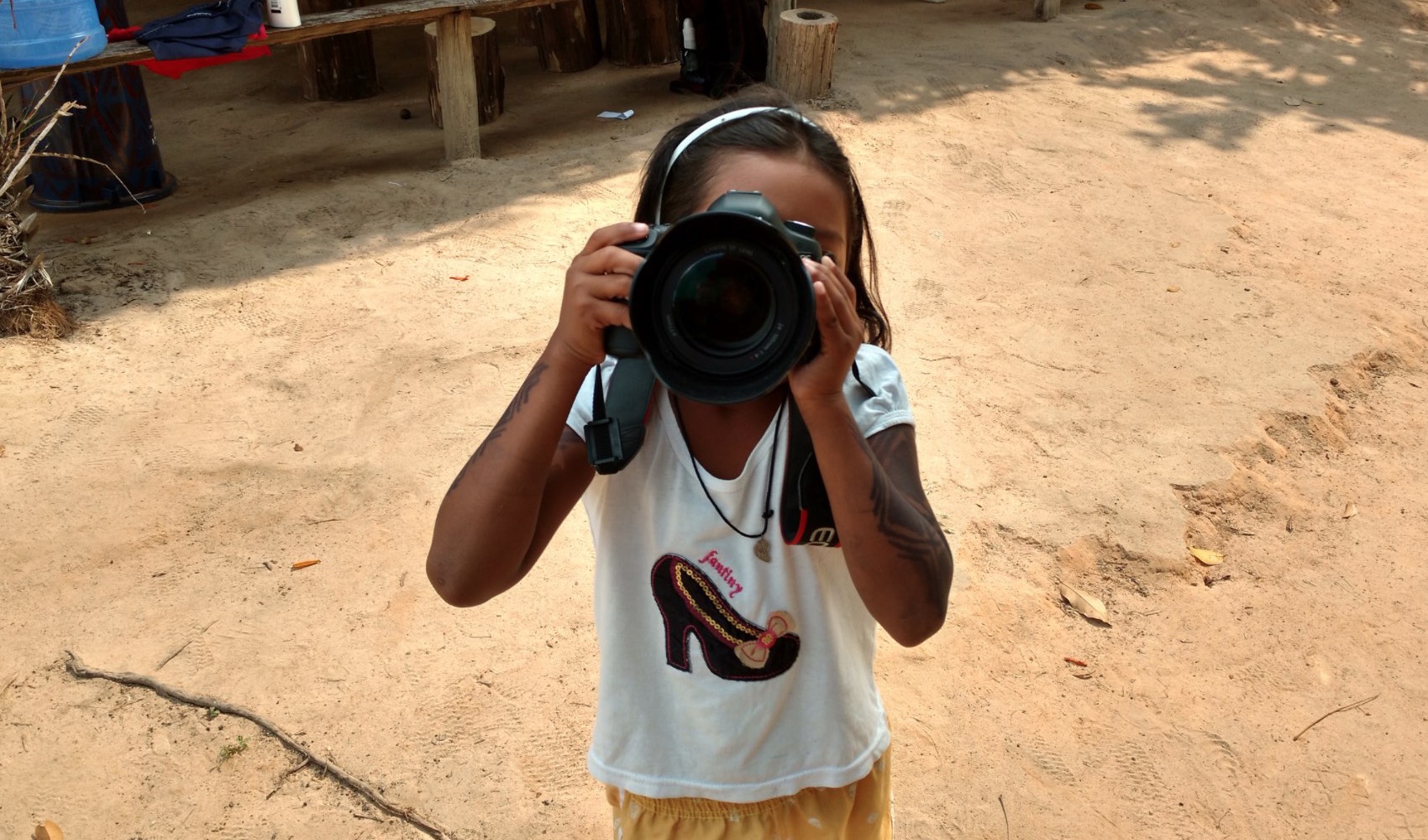October 2017 (Rio & Manaus)
Community-engaged Global Citizenship Education in Brazil
Created in response to ethical concerns about the paternalism and ethnocentrism that characterize many approaches to community engagement and student mobility (e.g. study abroad, international service learning and ‘voluntourism’), this program offers international educational experiences that are rooted in a commitment to local and global social justice and responsibility. The program fosters intercultural encounters that aim to nurture participants’ yearnings for change and connection, while sensitizing them to different understandings of fairness, wellbeing and global change, and enabling them to delve into the complexities of thinking and acting beyond dominant paradigms.
Different from traditional educational experiences that describe and prescribe change models that can be applied across contexts, we have created a program where participants learn from situated examples of innovative, community-focused interventions that respond to complicated social problems. The program facilitates ‘an alternative way to engage with alternatives’, where participants are both encouraged and supported to learn from and with the discomfort of facing the complexities, paradoxes, uncertainties and complicities involved in collaborative global justice work.
The program equips participants to navigate across complex ecologies of knowledge, learning to integrate the strengths of different knowledge systems and work relationally with diverse populations. They have the opportunity to engage educationally and collaboratively with global challenges such as peak oil, climate change, economic instability, welfare fragility, job precarity, political volatility, over-consumption, resource depletion, expropriation, forced migration, gentrification, modern slavery, gender, racial, and sexual violence, language/knowledge/bio-diversity loss, and food and water crises. In the process, they develop resilience for addressing complex problems without easy solutions.
We have partnered with social groups and initiatives that cultivate practices that gesture towards decolonial futures: where human existence is not defined by markets, states, the separation between humans and nature, individualism and a single monocultural rationality. These initiatives challenge, transform, and move social change beyond what is imaginable within socio-economic systems that neglect the bio-physical limits of the planet and the ecological and social costs of market-driven modern development.
This learning experience was designed to enable participants to:
- step back, look at the bigger picture and “dive deeper”;
- clarify, test and unpack assumptions and the implications of ideas without fear of judgment;
- acquire/develop languages/vocabularies/analyses to name and productively host (internal and external) tensions, conflict, and paradoxes;
- learn from examples that articulate contextual challenges, successes, and failures;
- engage with difficult questions while protecting the integrity of relationships;
- become comfortable with the discomfort of facing fears, contradictions and projections;
- form relationships of solidarity not dependent on shared knowledge, identity or understanding; and
- find peace and strength in vulnerability and develop resilience and stamina for the “long-haul” of ‘hospicing’ a system in decline and assisting with the birth of something new, undefined and potentially (but not necessarily) wiser.
Curriculum rationale
Global justice work addresses the unprecedented challenges that we face in an increasingly complex and globalized world. Ethical global justice engagements require deep learning about the social, cultural, political, economic and historical forces that shape peoples, places, spaces, and worldviews. It also requires that those seeking to make change develop complex and sophisticated understandings of the practical, ethical and epistemological difficulties of intervening in complex and dynamic systems, particularly when this work is collaborative and intercultural.
When this understanding is missing, learning and action tend to unintentionally reproduce unequal relationships between dominant and marginalized populations, simplistic explanations of inequality, and ethnocentric and paternalistic ideals of justice, responsibility, and change. In this context, interventions tend to privilege simplistic solutions that alleviate the symptoms of problems rather than strategies that would transform the underlying economic, cultural, and behavioral root causes that underpin the systemic reproduction of inequalities.
This program responds directly to these challenges by offering participants (students, social catalysts, educational leaders, community practitioners, and philanthropists) from across the world the opportunity to develop as social catalysts who have the analyses, insight and sensibility to walk alongside others in alleviating the effects and transforming the root causes of material and existential forms of poverty. This unique learning experience is based on an educational framework that integrates deep self and collective reflection, intensive intercultural encounters and exchange, the practical development of ethical relations in community engagement, a reciprocal relationship between theory and practice, and historical and systemic analyses of how inequalities are reproduced in theories and practices of social and global change.
The program supports participants to develop tools for: 1) challenging narrow ideas of the public good, beyond market imperatives; 2) critically evaluating traditional practices and flows of knowledge production; 3) resisting paternalistic notions of progress and development; 4) cultivating an appreciation for the gifts of multiple epistemic traditions, especially indigenous knowledge systems; 5) fostering reflexivity through an awareness of the complexities, complicities, difficulties and paradoxes of doing this work; 6) cultivating, developing and sharing practices and skills that build various aspects of alternative presents and futures (e.g. around food, architecture, energy, media, waste, etc.); and, 7) building a global alliance of social catalysts with both the passion and wisdom to confront complex social crises by advancing integrative justice.
The curriculum will engage participants in experiential learning that focuses on alternatives to mainstream systems and strategies, including alternative economies, alternative ways of relating to ecology, Southern epistemologies, and initiatives that highlight the importance of teachings from grassroots resistance and land-centered movements, including Indigenous, landless, peasant, and Quilombola struggles, with an emphasis on the knowledge of women and the reduction of gender, racial, and sexual violence and vulnerability, against intersectional systems of oppression.
This curriculum upholds a unique vision of transformational learning centred on an integrative approach to justice. It was designed to support a diversity of deep learning processes that combine practical doing (together), the building of trust (in one another), deepening analyses (of self, systems, and social and ecological complexity), and dismantling walls (between peoples, knowledges, and cultures). In this vision, intellectual engagements, the arts, the environment, and relational and embodied practices are all understood as important conduits for learning. This curriculum invites learners to explore the contributions, paradoxes, and limits of their current problem-posing and problem-solving paradigms, engage experientially with alternative practices that challenge the limits of their thinking and capabilities, and contribute to the creation of new paradigms of social change that open up not-yet-imaginable possibilities for co-existence in the future.
The curriculum also involves formal learning that focuses on examining the presumed superiority of modernist and Western-centric understandings of ‘development’, ‘success’, ‘impact’, ‘sustainability’, ‘accountability,’ and ‘productivity’ in social change efforts. This presumed superiority not only limits the potential power of diverse ways of knowing, but also fuels the expansion of a global cognitive injustice that severely limits our possibilities to understand others and exist together on the planet. When a Western-centric monocultural framework is universalized in initiatives of social change, engagements with diverse populations with other ways of being and knowing tend to be:
- Hegemonic (reinforcing and justifying the status quo)
- Ethnocentric (projecting one view as universal and superior)
- Ahistorical (forgetting the role of historical legacies and complicities in shaping current problems)
- Depoliticized (disregarding the impacts of power inequalities and ideologies)
- Salvationist/Self-serving (invested in self-congratulatory heroism)
- Un-complicated (offering ‘feel-good’ quick fixes that do not address root causes of problems)
- Paternalistic (seeking a ‘thank you’ from those who have been ‘helped’)
Our program is committed to challenging these harmful patterns, which are rooted in material and epistemological hierarchies, in order to create spaces for the flourishing of an “ecology of knowledges.” Such an ecology, in which there is symmetry between different and intersecting ways of knowing and being, creates conditions of possibility for people from diverse positions and histories to engage critically with the contributions and limitations of every knowledge system (including the most novel ones, which are only just in the process of formation). In this way, the curriculum offers a framework that directly challenges some of the most fundamentally problematic practices that abound in social interventions, while offering alternatives to the practices of reactive dogmatism, essentialism, romanticization of alternatives, and/or absolute relativism that are presently creating intercultural paralyses and other barriers to collaborative approaches to justice.
Examples of frameworks used in the program:
Shifting patterns of community engagement/experiential learning (towards “walking with”)
- From description/prescription and desire for certainty, coherence, consensus and control (traditional academic socialization) to articulating paradoxes and being comfortable with the discomfort of facing complexities, uncertainties, indeterminacy and incommensurabilities (internal and external to ourselves)
- Invitation to critically process: intellectual projections, affective compensations, physical disconnections and existential distractions – focus on patterns of “saviourism”
- Distinguishing between “learning from” (learning something that is predictable and somewhat expected) to “being taught by” (learning something unexpected that alters something important)
- Seeing education as “attunement”: expansion of constellations of knowledges, lived experiences, sensibilities, sensitivities, affect, temporalities, spatialities, rhythms, frequencies, metabolic processes, horizons of hope and possibilities of (co)existence
1)Affective/Intellectual dispositions (observing our relationship with knowledge)

2)Layered reasoning (expanding senses of knowledge and being)

3)Layers of analysis (“buraco mais embaixo”: asking deeper questions)

4)”Observing oneself observe” questions (“para além do próprio umbigo”)
- What perceptions, projections, desires and expectations inform what you are doing/thinking and how do these things affect your relationships?
- What cultural ignorances do you continue to embody and what social tensions are you failing to recognize?
- How can we distinguish between distractions and important stuff? How do we know when we are stuck?
- What is preventing you from being present and listening deeply without fear and without projections?
- What problems do your solutions reproduce or generate?
- What do you need to give up or let go of in order to go deeper?
- What truths are you not ready, willing, or able to speak or to hear?
- How can we respect the pace and readiness of people’s learning while being accountable to those negatively affected by this learning and its pace?
5)”Building stamina for the long haul” questions (“caminho mais longo”)
- How has our socialization and schooling trapped us in conceptualizations of (and relationships with) language, knowledge, agency, autonomy, identity, difference, body, education, criticality, art, sexuality, earth, time, space, and self…that restrict our horizons and what we consider to be possible / intelligible? [what restricts what is possible for us to sense, understand, articulate, want and imagine?]
- How can we engage and be taught by different systems of knowledge and being, struggles and attempts to create alternatives, (a)cutely aware of their gifts, limitations, ignorances and contradictions, as well as our own projections, graftings and instrumentalizations?
- How can we tap the possibilities that are viable but unintelligible within dominant paradigms? (How to invite people to consider what is deemed “impossible”?)
- How are the “waters rising” for different communities and how are they responding to the flood?
- What can engender a stream of connections and a sense of care and commitment to everything that overrides self-interest and is not dependent on convictions, knowledge, identity or understanding?
- What educational processes can 1)override our categorical neurological wiring and bio-chemical responses (our fears, self-interest, narratives, ego, narcissistic tendencies, wounds, etc); 2)activate a visceral sense of entanglement, responsibility, humility, generosity, sanity (not dependent on will or intellectual choices); and 3) open up possibilities/worlds that are viable, but unimaginable or inarticulable within our current frames of reference? [what, beyond convictions/ thinking/ agreements/ consensus, can offer an antidote to indifference?]
- How can we hospice a dying way of knowing/being and assist with the birth of something new, still fragile, undefined and potentially (but not necessarily) wiser with radical tenderness?
